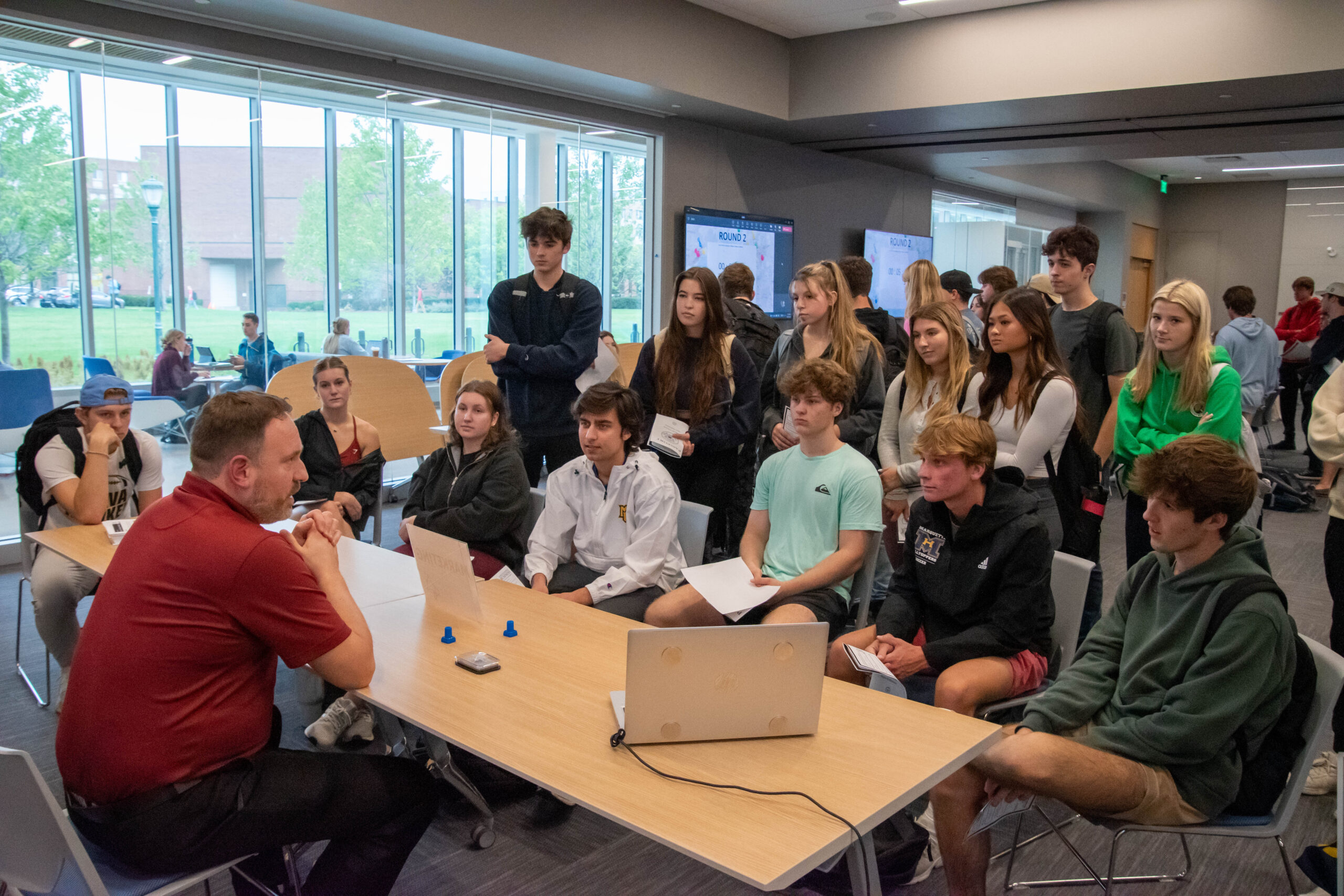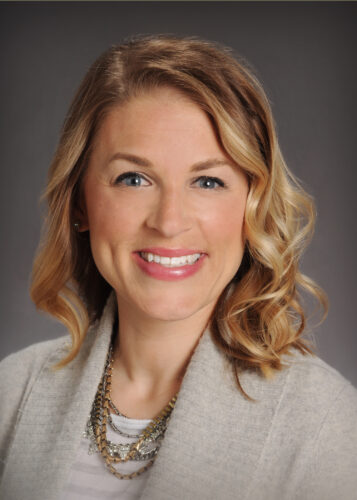It may seem premature to talk to first-year students just a week removed from moving into their residence halls about life after graduation, but Beth Krey believes it is essential.
“At the end of the day, that’s why they came to Marquette; to find a passion and to find a career,” Krey says.
Krey, assistant dean of undergraduate programs in the College of Business Administration, teaches LEAD 1050, the first in a series of three courses that instruct students on career skills. While classes in a students’ major provide the knowledge required to do a job effectively, LEAD gives students the know-how to get the job in the first place. LEAD classes involve learning LinkedIn strategies, practicing resume writing, engaging in mock interviews and networking with employers.
More students than ever view future job prospects as the most important aspect of their college experience, making courses like LEAD a necessity.
“One of college students’ major goals is to graduate and get a job,” says Hannah Lubar, Director of the Business Career Center who oversees the teaching of LEAD 3000. “Through these courses, we’re helping you do that; we’re helping lead you to a job that you’re hopefully going to like.”
According to the most recent first destination survey results, more than 95 percent of College of Business Administration graduates were either employed, in the military or in graduate school within six months of graduation, a testament to the LEAD courses’ success.
All freshmen in the business school start off with the basics in LEAD 1050, registering for the Handshake job portal and exploring different interests during the annual career awareness night. LEAD 2000 students further investigate the interests they developed in the prior year’s course by conducting informational interviews with employers. They also record themselves answering common interview questions. Finally, LEAD 3000 students learn the finer points of budgeting and salary negotiation, among other skills required to build a stable life after graduation.
For Lubar, the objective is “no wasted work.”
“Everything they work on is something they can use in a real job search,” Lubar says. “Having a draft of a cover letter that they could go back to, responding to interview questions that they’ll have to replicate in a future conversation; all of this is important.”
“If students are not in the middle of an active job or internship search, they may not feel like what they’re doing is immediately applicable, but all of the assignments should be tools to use for when they are conducting that search.”
After a few years of remote instruction, LEAD courses are now offered in a hybrid format, breaking up online lectures with in-person workshops and visits from employers.
Representatives from Direct Supply spoke to the LEAD 1050 class in September, while more than 40 different employers will come to the business school for the LEAD career awareness night. Restarting face-to-face engagement with hiring managers has been a boon to the course, according to Lubar.
“Even though a lot worked well within the online modules, a lot of that in-person connection and practicing those communication skills are best done with another human in front of you,” Lubar says. “Oftentimes, students come away from these interactions having learned about a career path that they previously didn’t even know existed.”
Current college students experienced fewer in-person engagements during high school because of COVID, which is changing the way faculty and staff think about their needs. LEAD professors report seeing more undecided students than in years past, especially among the first-year cohort.
Krey says her LEAD class is part of a college- and university-wide concentration on the students’ first eight weeks on campus — time that is essential for building the sense of belonging students may have missed out on in high school during the pandemic.
“Our faculty want students to be able to walk up to people recruiting in our building, whether it be companies or student organizations, and be able to introduce themselves confidently,” Krey says. “Taking this class is an important part of feeling like you have a place in the college and that’s what’s necessary before you can really get involved.
“We’re hyper-focused on both career and self-exploration, so these LEAD courses involve a lot of bouncing ideas off each other and a lot of trial and error to find out what works well.”
LEAD culminates with a simulated interview with one of the college’s employer partners. Even though it’s officially just an exercise, students in LEAD 3000 are told to come to the mock interview properly dressed and prepared for a first-round interview, because it occasionally turns into exactly that. Lubar recalls one LEAD student who got a second-round interview because of her performance on the in-class “mock interview,” which led to a summer internship.
“That mock interview with the employer is the students’ favorite thing; they seem to learn the most from that assignment,” Lubar says. “We have employers that come back and specifically want to engage with students through these interviews; they definitely handle it like it’s a real interview.”
The team of LEAD professors are in constant discussions with stakeholders about how to change the course to better prepare students for college and for employment. There are discussions about decreasing the number of lectures, building in more frequent student workshops and expanding the variety of employer-partners involved in the courses.
It all goes toward ensuring that students graduate Marquette Business with not just a degree, but a fulfilling job as well.



